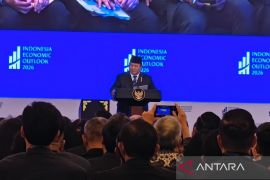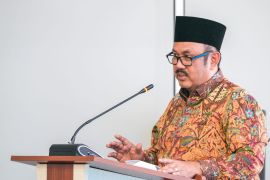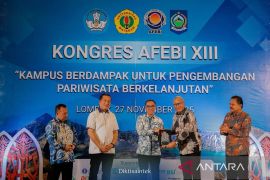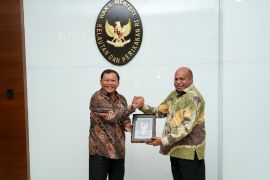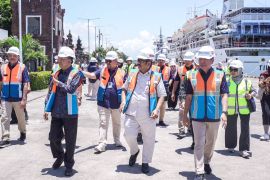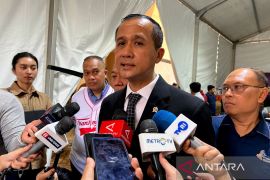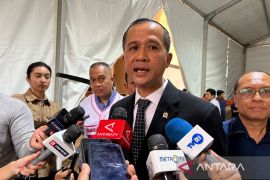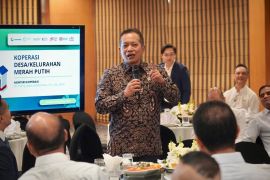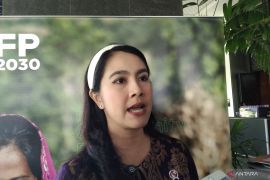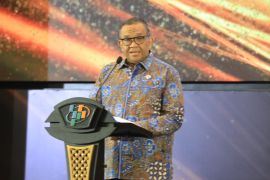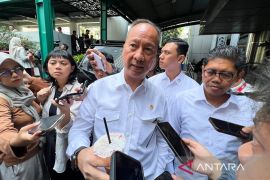The assessment of Indonesia`s position in today`s world was made at a seminar held by the Center for Strategic and International Studies (CSIS) themed "Indonesia`s Place in East Asia: Economic and Political-Security Dimensions" here on Thursday (Sept. 15).
"There are some promising numbers which Indonesia made in the economic area but we have been unable to catch up with the fast growing numbers in Asia and are even on the downside in economic policies so we can`t move forward," Djisman Somanjuntak, chairman of the CSIS board of directors, said at the seminar.
One of the changes that happened in the global economic pattern, according to Peter Drysdale, a professor of economics at Australian National University, was the expiry of the export-oriented development strategy. The strategy gained remarkable popularity 40 years ago but now it was outdated.
"The export sector had more discipline than the domestic sector in the past but after the financial crisis of 2008, the system supported by the United States and Europe could not be sustained and we need to find a new growth model," Drysdale said.
He predicted that in 2020, Asia would become the largest economic power center in the world due to the economic strength of China and India, their resilience to global financial crises and the reaping of demographic dividends.
"China`s economic and political transition is substantial since China needs a government system to maintain her economic income level, but will China become a democratic country? It`s not easy to affect China about her government system," he said.
Based on available data, China ranks as the world`s second largest economy after the US since 2010 and has been the world`s fastest-growing major economy, with consistent growth rates of around 10% over the past 10 years.
Director of the Institute of Asian Research of the University of British Columbia in Canada, Paul Evans, said the China factor was not just because of the country`s excellence efforts but because of China`s engagement in the global supply chain.
"Now China is changing her position from stakeholder in the global supply chain into the rule maker in international organizations such as WTO or IMF, but what kind of rule does she adopt? And where`s Indonesia`s position in the shifting?" he said.
Indonesia`s Position
Indonesia could act as a middle power between the major powers of China and the United States, some of the speakers at the seminar agreed.
"As a middle power, Indonesia could play a role between the major powers. Indonesia could act as a bridge between different civilizations and between developed and developing countries," Evans said.
He said Indonesia had many great diplomats and a spirit to play a moderating role but to do so it needed the right kind of political leadership.
"Indonesia has already played a constructive role as moderator in the Thailand - Cambodia border dispute but Indonesia is also expected to be a model to other ASEAN member countries by being able to resolve its own territorial disputes," said Tan Sri Dato Mohamed Jawhar Hassan, chairman of the board of directors of Malaysia`s Institute of Strategic and International Studies.
The moderate position in Indonesia foreign policy needed to be translated by revitalizing her classic free and active foreign policy doctrine. "A Thousand Friends, Zero Enemies" and the doctrine of "Dynamic Equilibrium" of Foreign Minister Marty Natalegawa.
"Indonesia as a middle power country means that we are in a moderate position between major powers; traditionally Indonesia does keep a distance from major powers and doesn`t let herself be co-opted by any side," said Dewi Fortuna Anwar, a political adviser to Vice President Boediono.
Dewi said, Indonesia should use ASEAN as an anchor for its wider engagement in the world. The concept of ASEAN connectivity needed to be realized as soon as possible to make people from member countries know each other and to minimize the possibility of future conflicts within the region.
But Vice Chairman National Economic Council Chatib Basri said he was pessimistic about the prospects of ASEAN connectivity.
"I don`t think ASEAN Connectivity will be established because when it happens, Sumatra Island will tend to do business with Malaysia and Singapore while Java will be left alone," he said.
The greatest constraint to Indonesia`s economic progress according to Chatib was her logistics infrastructure.
"Indonesia logistic performance index is just 3.9 or lagging behind Malaysia`s 3.3 or Singapore`s 2.2. This means that people have to pay more for some goods since they need more time to distribute them to other regions whereas we can`t become part of the international production network without joining the global supply chain," he said.
Chatib also said that the 6.5 percent economic growth Indonesia had enjoyed was not enough to ensure the country`s economic condition beyond 2050.
"Indonesia`s demographic condition is like Japan`s baby boom in the 60s or South Korea`s baby boom in the 80s, we will have a lot of productive people in 2025 but if we can`t achieve 9 percent growth, we will have trouble in aging in 2050," he argued.
Another constrain was macroeconomic stability such as investment.
"Investment only contributes 32 percent to our economic growth, if we want to gain eight percent of economic growth, investment must be 40 percent. This means we must have an open economy," he said.
He suggested that the government build the Merak-Bakauheni bridge to reinforce the country`s logistical performance and seek more investment.
"I think this country is not really sure where she wants to go, I call it sitting on the fence," he said. (*)
Reporter: By Desca Lidya Natalia
Editor: Kunto Wibisono
Copyright © ANTARA 2011
